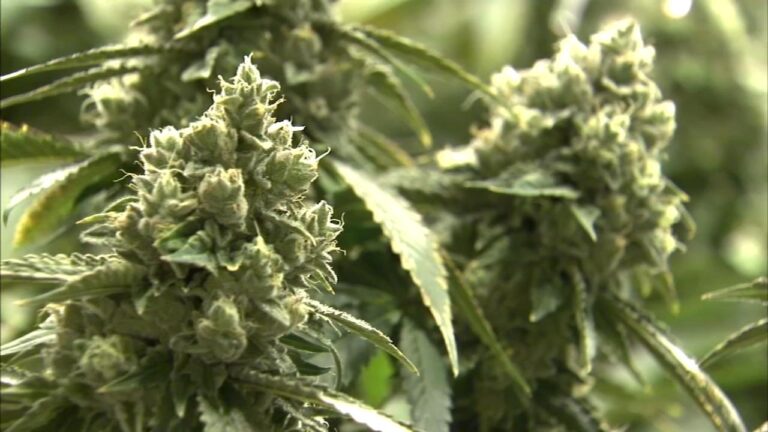Overcoming Obstacles in Illinois’ Cannabis Cultivation: A Deep Dive into Industry Realities
Complex Regulatory Surroundings: The Growing Pains of Illinois Cannabis Cultivators
Illinois’ cannabis sector is rapidly expanding, yet it remains entangled in a labyrinth of regulatory requirements that pose significant challenges for cultivators.The licensing process alone can extend over many months, sometimes years, delaying the launch of operations and product availability. Growers must navigate a maze of strict security mandates, local zoning laws, and environmental regulations, each adding layers of complexity and cost. Moreover, the state’s cannabis policies are in constant flux, compelling cultivators to stay agile and responsive amid often ambiguous and shifting guidelines.
These regulatory complexities translate into a prolonged and uncertain timeline before growers can expect to see returns on their investments. Key impediments include:
- Extended state application reviews that disrupt financial planning and cash flow management.
- Steep renewal fees and rigorous compliance standards that strain limited startup budgets.
- Inconsistent local ordinances creating a patchwork of rules that vary widely across municipalities.
- Restricted access to traditional banking services due to federal cannabis prohibitions, forcing reliance on cash transactions.
These factors combine to create an environment where success hinges as much on regulatory navigation as on cultivating premium cannabis. For many Illinois growers, profitability remains a distant goal rather than an immediate outcome.
| Regulatory Challenge | Effect on Cultivators |
|---|---|
| Licensing Delays | Postponed operations and revenue loss |
| Zoning Restrictions | Limited facility location options |
| Compliance Expenses | Increased startup and operational costs |
| Banking Limitations | Heightened security risks due to cash handling |
Market Dynamics and Competitive Pressures in Illinois’ Cannabis Industry
The Illinois cannabis market is not only shaped by regulatory challenges but also by intense competition among a growing number of cultivators and dispensaries. As the market matures, growers face pressure from both established enterprises and new entrants vying for consumer attention. Recent supply chain interruptions,evolving state regulations,and shifting consumer preferences have created a volatile business climate,complicating long-term strategic planning.
Several critical market factors intensify this competitive landscape:
- Scarcity and delays in licensing prolong the gap between capital investment and revenue generation.
- Price fluctuations driven by oversupply and changing demand patterns compress profit margins.
- Product quality differentiation becomes essential as consumers increasingly seek premium cannabis offerings.
- Industry consolidation sees smaller cultivators often absorbed by larger cannabis corporations, reshaping market dynamics.
| Market Challenge | Impact on Growers |
|---|---|
| Regulatory Shifts | Operational delays and rising compliance costs |
| Oversupply | Declining wholesale prices and squeezed margins |
| Licensing Bottlenecks | Extended wait times and capital immobilization |
| Changing Consumer Preferences | Increased demand for edibles and concentrates, reducing flower sales |
Effective Approaches for Thriving in Illinois’ Cannabis Market
Achieving success in Illinois’ cannabis industry requires a combination of patience, strategic planning, and versatility in the face of regulatory evolution. New entrants should emphasize strict adherence to state regulations to avoid costly penalties and operational interruptions. Cultivators who cultivate strong relationships with local officials and community members often experience smoother licensing processes and enhanced community support. Furthermore,engaging with Illinois’ social equity initiatives can provide both financial incentives and meaningful community connections,especially for those from historically marginalized groups.
Operational excellence, driven by data-informed cultivation and retail strategies, distinguishes profitable businesses from those struggling to break even. For instance, investing in advanced environmental monitoring systems can optimize growing conditions, boosting yield consistency and product quality. Below is a summary of strategic focus areas for new and existing growers:
| Strategic Focus | Advantage |
|---|---|
| Regulatory Compliance | Reduces legal risks and operational disruptions |
| Community Relations | Builds brand loyalty and local support |
| Technology Adoption | Enhances production efficiency and product consistency |
| Participation in Social Equity Programs | Unlocks funding opportunities and niche markets |
Looking Ahead: The Future of Cannabis Cultivation in Illinois
As Illinois’ cannabis industry continues to evolve amid regulatory shifts and market fluctuations, the experiences of cultivators underscore both the significant challenges and promising opportunities within this burgeoning sector. While the journey to profitability is frequently enough protracted and fraught with obstacles, these growing pains reflect the complex realities of establishing a foothold in a competitive and rapidly changing market. For many cultivators, resilience and strategic adaptability remain crucial as they work toward realizing the long-term rewards of their investments.





